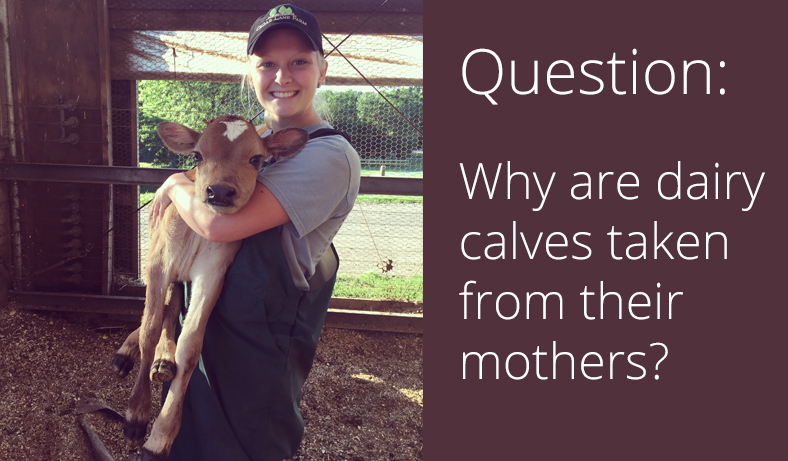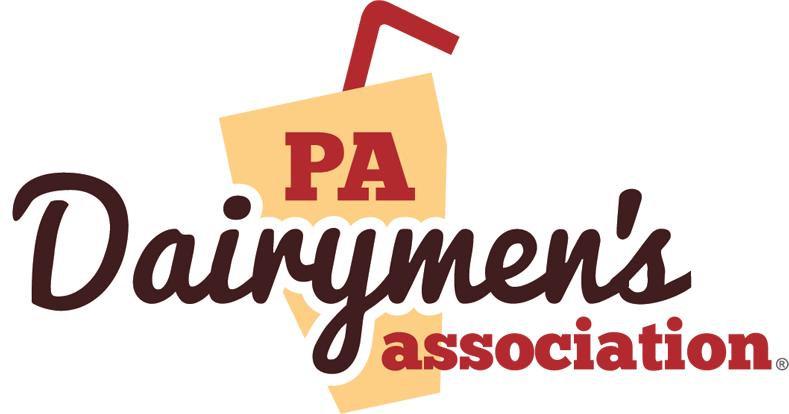
Guest blogger, Sarah Fenwick is a recent graduate from Delaware Valley University as a large animal science major with a dual minor in agribusiness and dairy science
One of the most popular questions dairy farmers receive is, “Why are baby calves taken from their mothers?”
The reason why is misunderstood and false information on this practice can be found all over the internet. As a recent graduate from Delaware Valley University as a large animal science major, I have studied and witnessed first-hand how critical this practice is in aiding in the health and growth of the calf and to relieve the mother of possible complications.
Though it is most people see calves being taken from their mothers as an act of inhumane handling, separating the calf from the mother shortly after birth has benefits to both the calf and the cow.
Cows could crush their baby. Leaving the calf with her mother for too long can increase the chance of the mother or other herd mates harming the newborn. Cows are big animals, and they can easily step on the calf, and herd mates could push the calf over or attempt to harm her. Calves are put into their own housing where they are safe, clean and well taken care of by the dairy farmer multiple times a day.
Calves are born with a weakened immune system. The antibodies from a cow’s bloodstream that provide immunity to the calf are too large to pass across the cow’s placental wall. As a result, a calf needs to be fed colostrum within the first 24 hours of life. Colostrum is the mother’s first milk which is nutrient dense with antibodies and is critical in protecting the calf from possible disease. Not all calves will nurse from their mother quickly enough or consume enough colostrum to protect them. By separating the calf from the cow, the dairy farmer can ensure that the calf receives the proper amount of clean colostrum within their first hours of life.
Drinking directly from the udder can lead to disease and sickness from the dirt, debris, and bacteria that lays upon the teats. A calf suckling exposes the mother cow to infection and diseases. Cows are an animal of routine, it is healthier for the mother to be milked evenly in each quarter, two to three times a day rather than being suckled by the calf randomly. In addition, it is healthier for a calf to be fed a consistent amount of milk through a clean bottle. When a calf suckles on its mother’s teats, this exposes the cow to infection. By milking the cow with a milking machine and proper sanitation, the risk of infection drops significantly.
Taking care of calves is one of the most important tasks that dairy farmers do each day. It is important to them that the calves are safe, healthy and comfortable. Dairy farmers know that their calves are the future of their herd, and they know that it is the right thing to do to care properly for them. Dairy farmers care about their cows and their calves!
